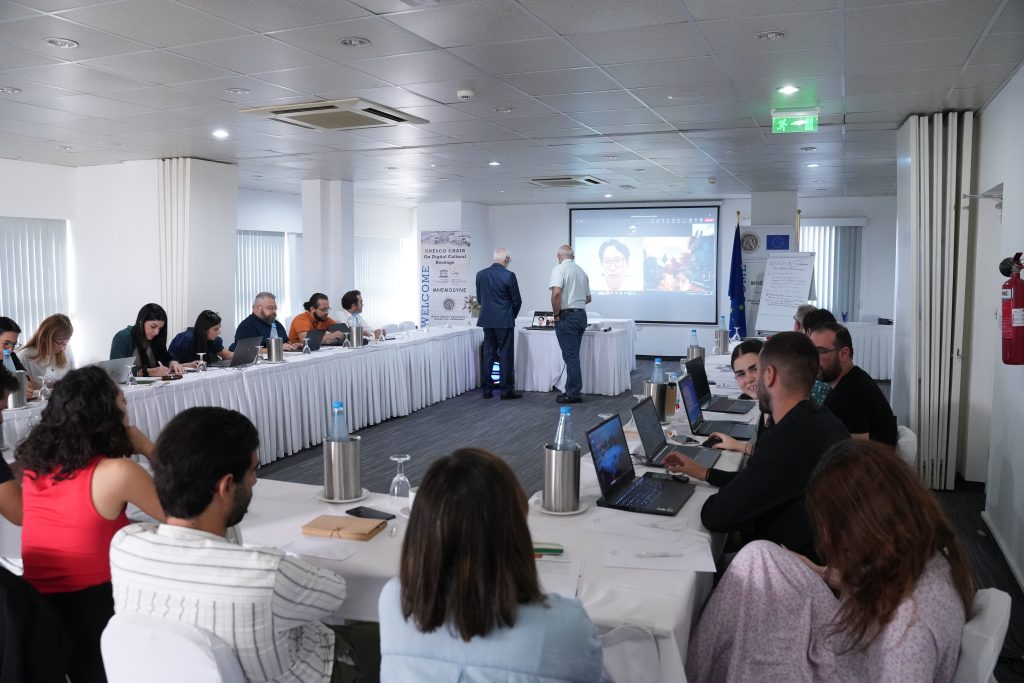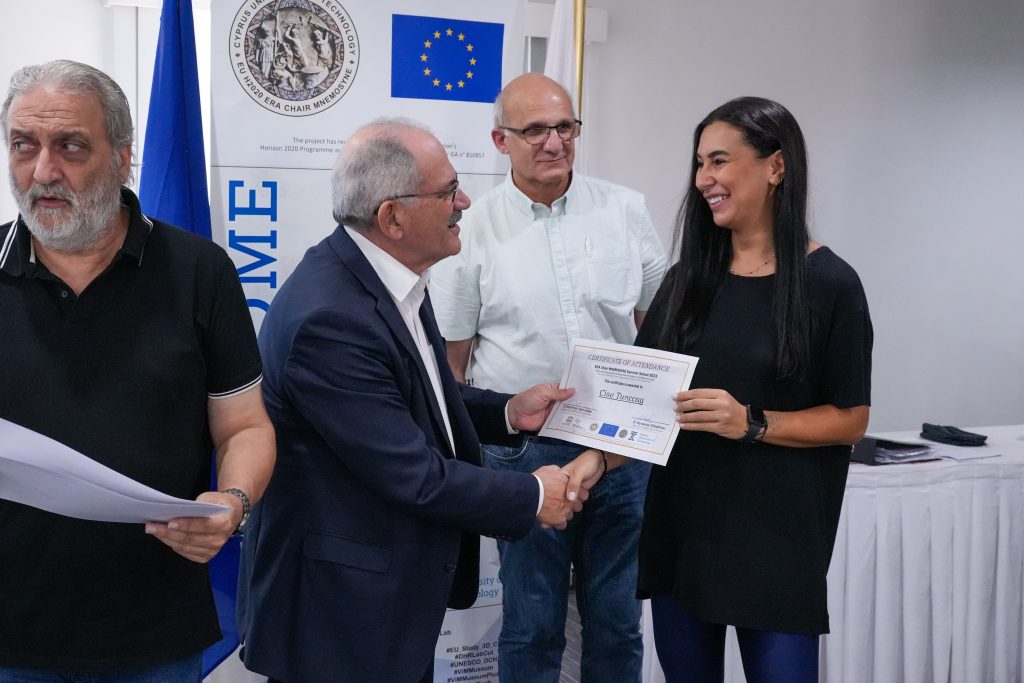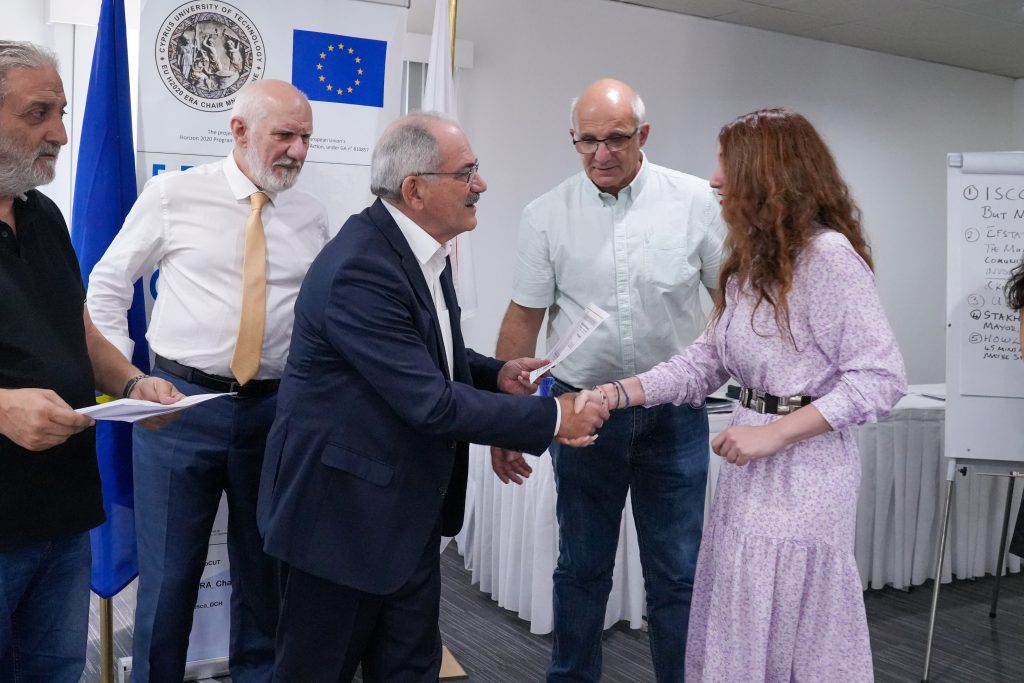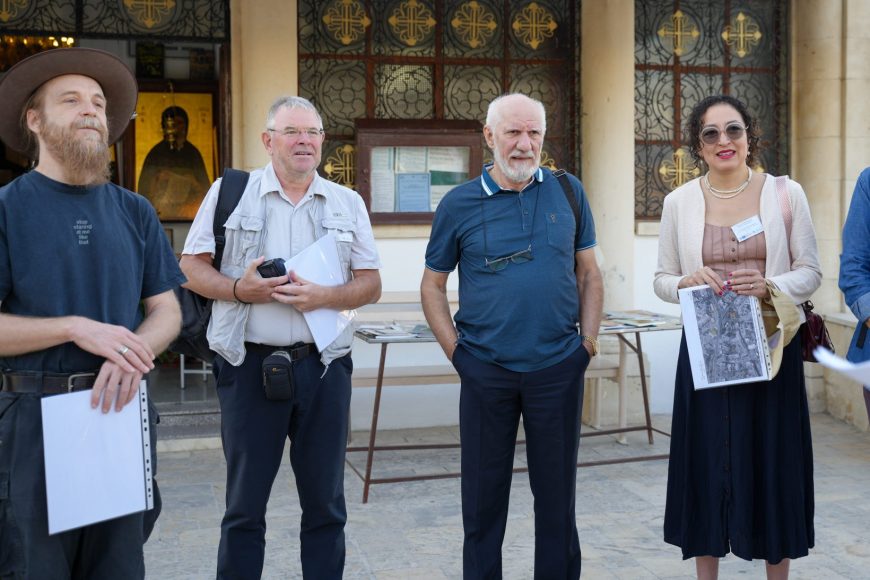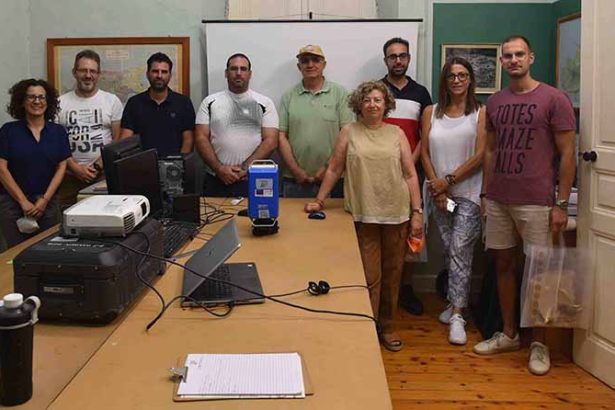A comprehensive and fruitful educational week featuring respected international experts in the dynamic field of digital documentation of cultural heritage took place in Limassol, Cyprus between October 23 and 27, 2023.
Organised by the EU-funded H2020 ERA Chair Mnemosyne Project at the Cyprus University of Technology, the MNEMOSYNE Summer School 2023 brought together cultural heritage professionals, stakeholders and early career researchers for a unique opportunity to present, brainstorm and participate in a hands-on Aerial photogrammetry and terrestrial 3D laser scanning training experience!
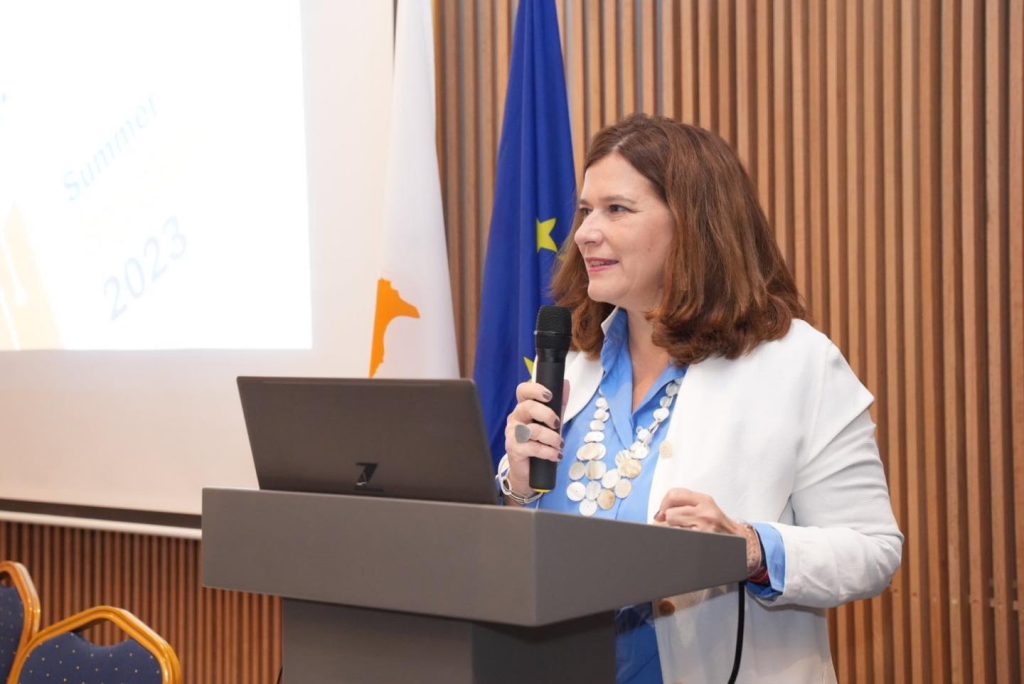
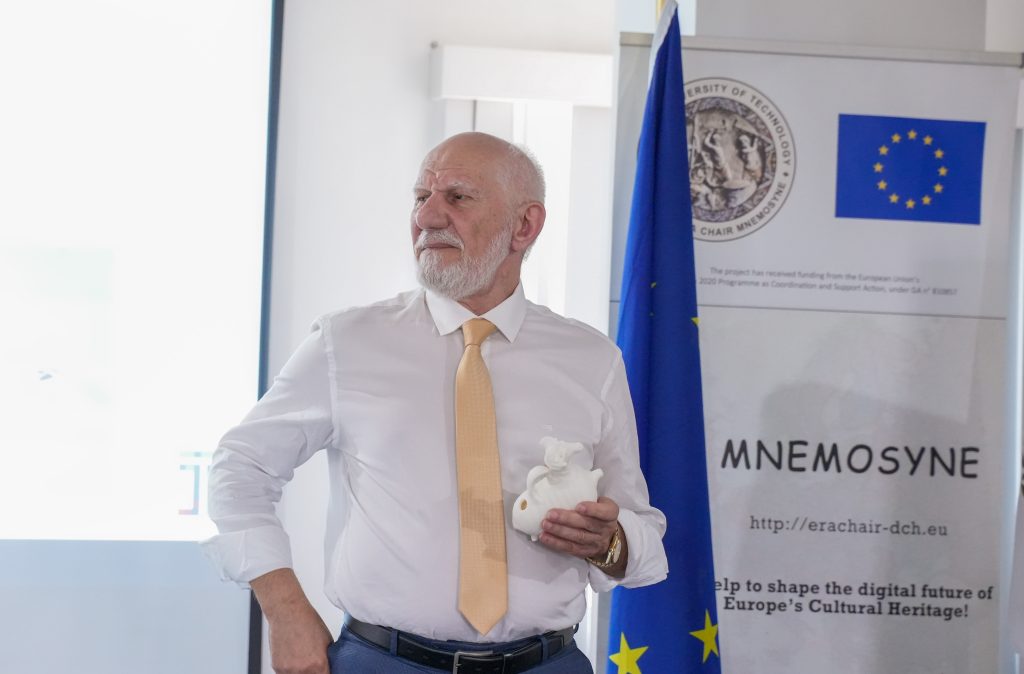
The Summer School, entitled “Re-envisioning Cultural Heritage Documentation in the Metaverse Age”, was opened with addresses by the Deputy Minister of Culture of the Republic of Cyprus, Prof. Dr. Vasiliki Kassianidou, the Rector of the Cyprus University of Technology, Prof. Panayiotis Zaphiris, the Mayor of Limassol, Mr. Nicos Nicolaides and the Ambassador of the Hellenic Republic to Nicosia, H.E. Mr Ioannis Papameletiou.
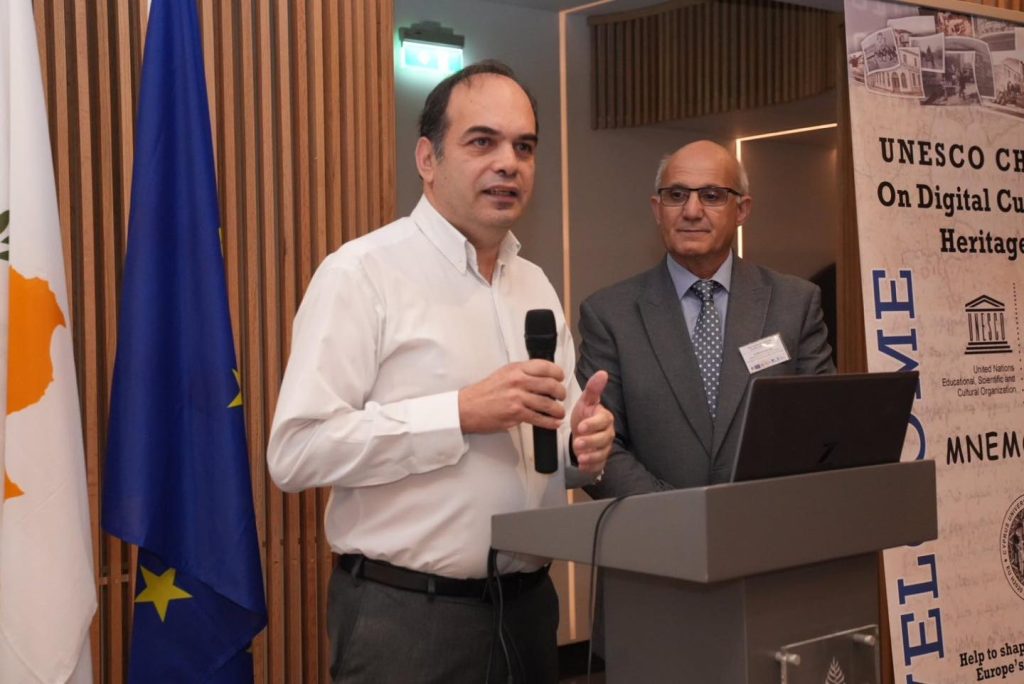
Over the week, 42 participants from nine European countries and the United Nations Development Programme followed the presentations of key professionals in the domain of Digital Cultural Heritage. In total, twenty-five experts from Cyprus, Austria, Finland, Germany, Greece, Italy, Malta, the Netherlands, Slovenia, South Korea, Sweden and the United Kingdom shared their know-how during this training activity.
With the kind permission of the custodians of Koprulu Haci Ibhrahim Aga Mosque and Agios Antonios Orthodox Church, the Summer School participants had the great opportunity to undertake fieldwork training at the planned Square of Friendship and Peace, Limassol. Dating from the nineteenth century, these two historic places of worship served the residents of the poor Cami-Cedid neighbourhood in the western part of the city and are important examples of the coexistence and everyday life that Greek and Turkish Cypriots shared in Limassol.
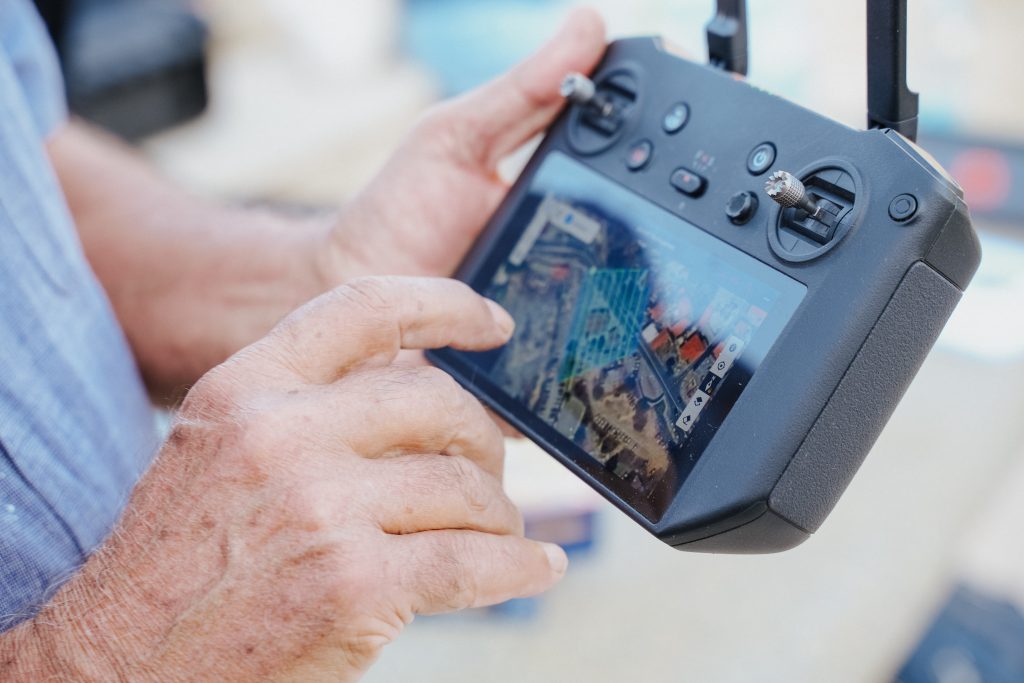
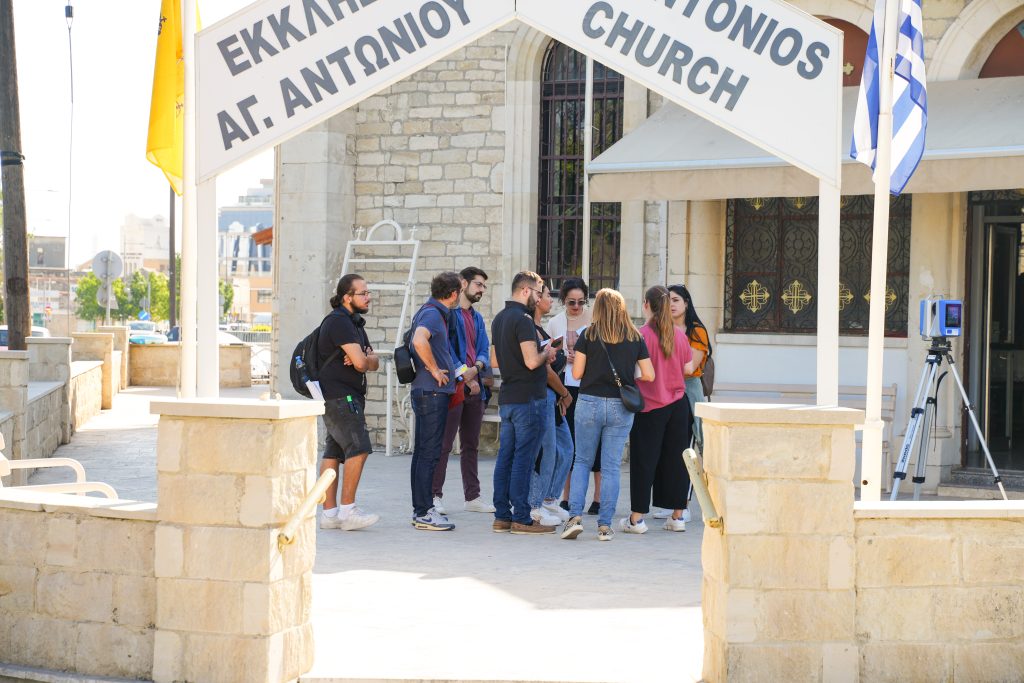
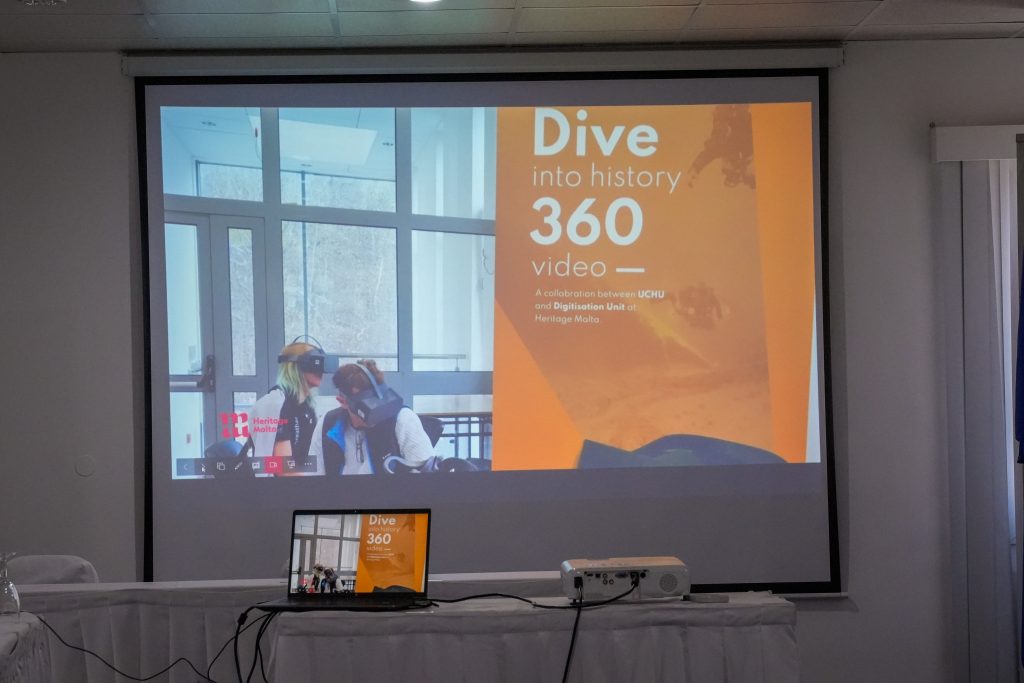
The results of the fieldwork are now available to the Limassol municipality, contributing to the endeavour to reinvigorate the neighbourhood, ease traffic problems, and attract new visitors to the area.
Three new initiatives were announced and presented at the opening ceremony of the Summer School:
- the signing of a bilateral cooperation agreement between the Union of Occupied Villages of the District Famagusta and Cyprus University of Technology for the digitisation and preservation of the Union’s villages memory,
- the joint collaboration between the Museum of Mediterranean and Near Eastern Antiquities in Stockholm, Sweden, and the UNESCO Chair on Digitial Heritage at the Cyprus University of Technology to digitise the largest collection of Cypriot artefacts outside of the island and,
- the creation of seven (7) PhD fellowships in the area of Digital Cultural Heritage sponsored by the Municipality of Limassol to digitise the Memory of Cypriot and Greek diaspora in Africa, archived at the Patriarchate of Alexandria and All Africa.
On the last day of the Summer School, the scholars presented the results of their hands-on training activity for the digital holistic documentation of the two monuments’ to the Mayor of Limassol and the two local community leaders, highlighting the importance of the documentation and protection of our common memory and the unique cooperation among stakeholders, academia and research.
